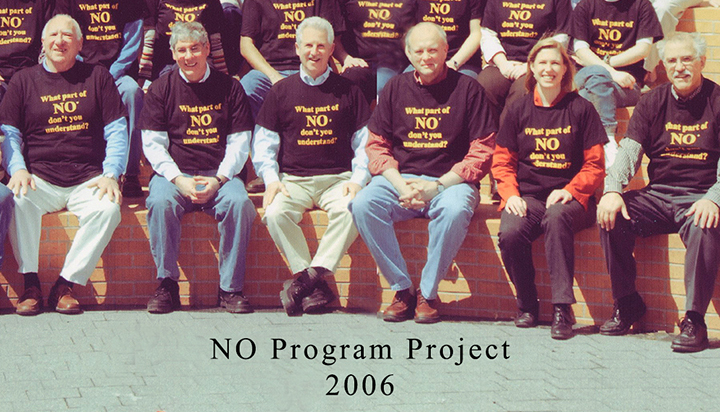Faculty Collaborators

Sebastian Carrasco DVM, MPVM, M.Sc., Ph.D. DACVP is an Assistant Professor of Pathology and Laboratory Medicine at Weill Cornell Medicine. He is also a Comparative Pathologist in the Center for Comparative Medicine and Pathology at Memorial Sloan Kettering Cancer Center.
Dr. Carrasco’s research interests have focused on understanding the role of Borrelia burgdorferi’s virulence factors and macrophage scavenger receptor CD36 in the pathogenesis of arthritis and carditis in the mouse model of Lyme disease. His collaborative research focuses on phenotyping and comparative pathology in diverse translational research areas, including infectious diseases, cancinogenesis, immunology, aging, microbiome, toxicopathology, mouse models for immuno-oncology research, and mouse models of SARS-CoV2. He is actively collaborating with DCM staff and MIT investigators on different projects, including infectious disease outbreak investigations in laboratory rodents (helicobacter spp., klebsiella pneumoniae, and pneumocystis murina), spontaneous neoplasias in colonies of NHPs, Lyme disease pathogenesis, N-nitrosodimethylamine (NDMA)-induced hepatic carcinogenesis, and toxicopathology of novel engineered sACE2 decoy receptors in mouse models of SARS-CoV2.

Peter C. Dedon, MD, Ph.D., is an Associate Professor of Bioengineering and Environmental Health. His work includes the interactions of most genotoxins with DNA, which have been studied with isolated, naked DNA, an essential simplification for determining gross chemical mechanisms. DNA rarely exists as such in the living organism, however, in which it is packaged along with proteins into the compact mass of chromatin. There is evidence to suggest that chromatin structure changes the way genotoxins interact with DNA in vivo, and it is the long-term objective of the research in Dr. Dedon's laboratory to delineate the rules that govern the interactions of small molecules with chromatin from toxicologic, pharmacologic and biochemical points of view. An understanding of the role that chromatin structures play in the biochemistry of DNA-interactive agents is essential to the design of selective chemotherapeutic agents and chemical probes of DNA and chromatin structure, and to the understanding of the mechanisms of mutagenicity, carcinogenicity, and DNA-directed toxicity of small molecules.
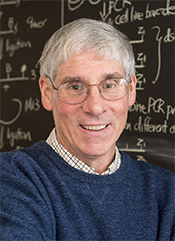
John M. Essigmann is the William and Betsy Leitch Professor of Biological Engineering, Chemistry and Toxicology. He is the former Director of the Center for Environmental Health Sciences and Associate Head of the Department of Chemistry. His research focuses on the responses of living things to DNA damaging agents. Current projects include determining of high-resolution mutational spectra of chemical carcinogens, such as aflatoxin B1 and N-nitrosodimethylamine, in mice and in cell lines derived from those mice. The goal of this project is to develop early-onset biomarkers to detect cancer and to determine if the mutational spectrum in an animal, or humans, corresponds to the spectrum produced by specific environmental agents. Additionally, his group uses mutagenic DNA bases, introduced into the DNA synthesis precursor pool, to accelerate the acquisition of mutations in viruses or cancer cells. The objective is to use “lethal mutagenesis” to force pathogenic viruses or tumor cells to exceed the error catastrophe limit, which leads to death of the virus or cancer cell.

Galit H. Frydman, DVM, ScD is currently an Instructor in the Division of Trauma, Emergency Surgery and Surgical Critical Care in the Department of Surgery at the Massachusetts General Hospital. Dr. Frydman is also the President and Chief Science Office of Coagulo Medical Technologies, Inc., a diagnostics company that was spun out of MIT and MGH based on her postdoctoral work. Dr. Frydman's current research is focused on the discovery of novel immunothrombotic mechanisms in the face of infection and trauma in order to identify new drug targets. She works with multidisciplinary teams and on a variety of projects, including the development of new microfluidic devices for single cell interactions, new microneedle drug delivery tools and medical devices.
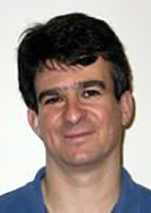
Bruce Horwitz, MD, PhD - Assistant Professor at the Harvard Medical School is one of the Division's research collaborators. He has extensive experience developing immuno-deficient animal models and in performig complex adoptive transfer and radiation chimera experiments.
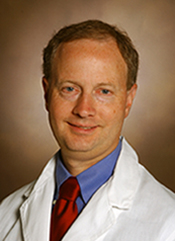
Richard Peek, MD, Ph.D., currently holds the Mina Cobb Wallace Chair in Immunology and is Professor of Medicine; Pathology, Microbiology and Immunology; and Cancer Biology at Vanderbilt University Medical Center. He is also Director of the Division of Gastroenterology, Hepatology, and Nutrition, a position he has held since 2004. Dr. Peek’s research is focused squarely on defining mechanisms of Helicobacter pylori pathogenesis within the context of gastric cancer. To define the molecular basis that underpins this association, Dr. Peek’s group developed both basic and translational approaches to discern how bacterial, host, and environmental constituents influence susceptibility to this disease. He defined mechanisms through which H. pylori cagA strains augment cancer risk by demonstrating that such strains activate an oncogenic pathway that dissociates proliferation from apoptosis. His discovery that CagA activates b-catenin signaling defined a novel mechanism broadly applicable to microbial carcinogenesis. Subsequent studies in rodent models established that CagA is required for the development of gastric cancer, firmly implicating this effector as a bacterial oncoprotein. His recent studies in organoid ex vivo systems, animals, and human populations have demonstrated that environmental factors associated with increased gastric cancer risk, such as iron deficiency, can augment the function of H. pylori oncogenic factors, thus representing attractive biomarkers for the identification of infected persons at high risk for disease.
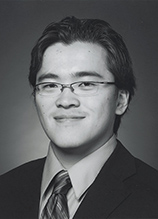
Alex Sheh, PhD, is a Research Scientist and is Chief of the Microbiome Core. His research interests include understanding how pathogens and the environment influence the microbiota and consequently, disease outcomes. Dr. Sheh has particular interest in factors that modulate carcinogenesis in H. pylori mouse models and manages the Division’s metagenomics and bioinformatics pipeline.

Timothy C. Wang, MD, Professor of Medicine at the Columbia University, has an active NIH supported collaboration of Helicobacter associated gastric cancer with Dr. Fox. Timothy Wang is also Chief of the Division of Digestive and Liver Disease at Columbia and has extensive experience in in vivo molecular techniques constructing transgenics and knockouts. His current research is dissecting the pathophysiology of gastrin on target tissue using these genetically manipulated mice.

Keith T. Wilson, M.D. holds the Thomas F. Frist Sr. Chair in Medicine and is Professor of Medicine and Pathology, Microbiology and Immunology at Vanderbilt University School of Medicine. He is the Director of the Vanderbilt Center for Mucosal inflammation and Cancer, as well as the Director of Research in the Division of Gastroenterology, Hepatology, and Nutrition at Vanderbilt University Medical Center. Dr Wilson works with Dr. Fox on a longstanding program project grant related to the etiology of gastric cancer. Dr. Wilson’s laboratory investigates gastrointestinal mucosal immunology, inflammation, and carcinogenesis. His work is focused on both Helicobacter pylori infection and inflammatory bowel disease. Studies from his group have implicated polyamines in gastric disease progression and led to a clinical trial with difluoromethylornithine in patients with precancerous gastric lesions that is now in the analysis phase. His group is also investigating other strategies for gastric and colon cancer prevention, including scavenging of electrophile adducts. Studies involve mouse and gerbil models of cancer as well as extensive use of patient-derived organoids from stomach and colon.
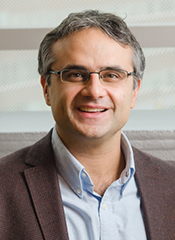
Omer Yilmaz, MD, Ph.D., The goal of the Yilmaz laboratory is to understand how adult stem cells and their microenvironment adapt to diverse diets in the context of tissue regeneration, aging, and cancer initiation. Towards this end, they are studying the effects of dietary interventions on intestinal stem cell (ISC) function in the mammalian intestine. Since ISCs, like all adult stem cells, possess the ability to self-renew and the capacity for differentiating into tissue-specific cell types, they likely play an important role in remodeling the intestine in response to diet-induced physiologies.
A majority of ISCs express the G protein-coupled receptor 5 (Lgr5) and reside at the bottom of intestinal crypts nestled between Paneth cells. These cells constitute a component of the stem cell cellular neighborhood or “niche,” and elaborate myriad growth factors and cues necessary for the maintenance of ISCs. The Yilmaz lab is working on elucidating the molecular mechanisms underpinning the interaction between ISCs and Paneth cells in low-calorie diets such as calorie restriction and pro-obesity diets such as high-fat diets. By comparing how ISCs and their surrounding cells adapt to diverse nutrients, they will gain a deeper understanding of how the intestine integrates physiology with its growth and why some diets reduce or increase the risk of colon cancer.
Also, his lab has developed numerous tools and techniques to better model colon cancer using murine and patient-derived tissues. In one approach, CRISPR/CAS9 genome edited intestinal cancer organoids (that is, 3-D primary “mini-intestinal cancers”) are endoscopically transplanted into the colons of recipient mice. In a complementary approach, viral particles that contain CRISPR/CAS9 components are endoscopically directed to the intestinal mucosa to induce in situ colonic tumors. With such methods, it now possible to robustly model the various steps of intestinal tumorigenesis from early precursor lesions to liver metastasis. The development of such tools will enable them to dissect how different dietary states, aging, and the gut microbiome influence tumor initiation, growth, metastasis, and drug resistance. The Yilmaz laboratory has been collaborating with the Fox lab (DCM, Biological Engineering) to understand how diet-related changes in the microbiome alter intestinal stemness and early tumor formation using mouse and human organoid models and mouse colon cancer models.
